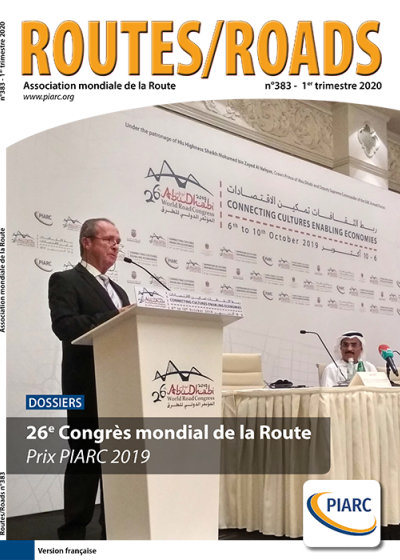Which Road Resurfacing Strategies Best Promote Sustainability? Case Study on a French Motorway Section

Road transportation is key to the pursuit of sustainable development. In France, this sector accounts for: 8% of national employment, 13% of GDP, 45 billion EUR in annual tax revenue, 10% of a typical household's financial budget, 5% of collective time spent, and a third of the country's energy consumption and carbon emissions. Given this sector's strong impact on the society at large, maintaining the road network under optimal conditions, in achieving sustainability objectives and despite continuously shrinking budgets, requires an appropriate decision-making tool. The road facility management toolkit is focused on both technical and financial aspects. The methods recommended by the French Transport Ministry (socioeconomic assessment, environmental impact study) only partially evaluate the social and environmental performance of construction projects. Moreover, the gradual de-emphasis on road maintenance over the past 20 years has been manifested by pavement deformation, resulting in increased vehicle consumption (i.e. up to 12% additional fuel, 8% more on tires and 120% spent on suspension parts) due mainly to pavement-vehicle interactions. In light of these observations, the sustainable tradeoff in today's road maintenance strategies must incorporate the entire set of stakeholders, the road life cycle and pavement-vehicle interactions. We'll be presenting here an innovative method capable of meeting this challenge and then apply it to a French motorway section, in the aim of drawing lessons on the sustainability-related impacts of motorway investments. We'll conclude by suggesting leads for improving the French motorway maintenance system.
-
Information sheet
- Date: 2020
- Author(s): DE BORTOLI Anne
- PIARC Ref.: RR383-015
- Number of pages: 4
-
This article has been published in the Routes/Roads magazine
